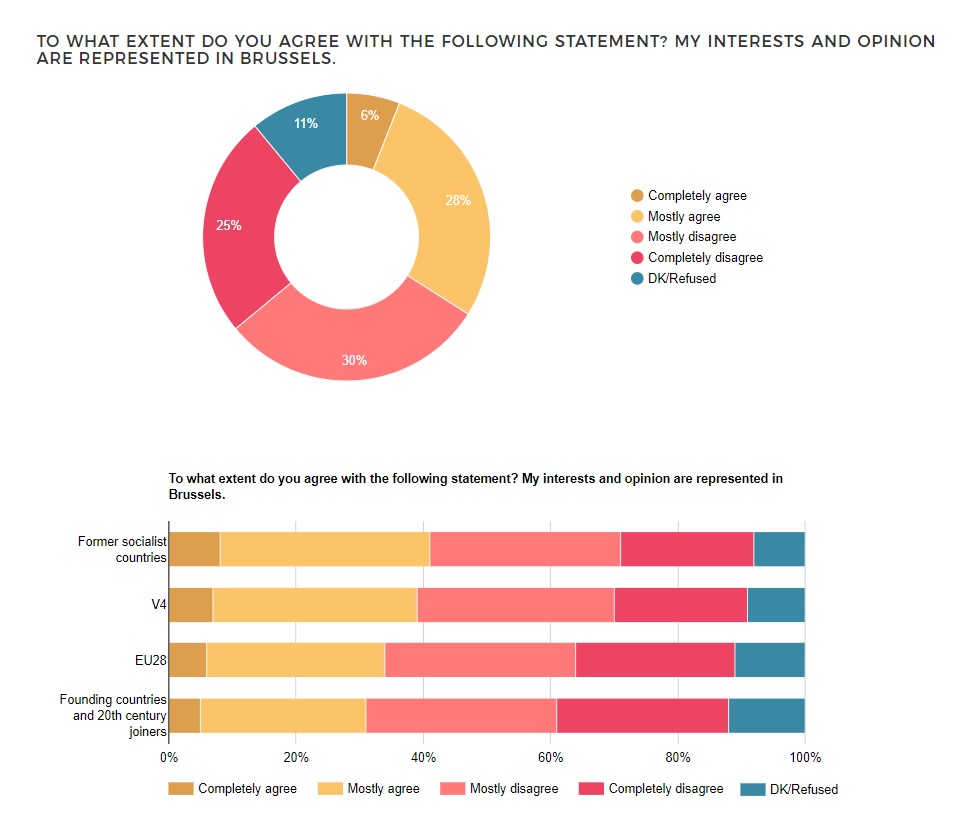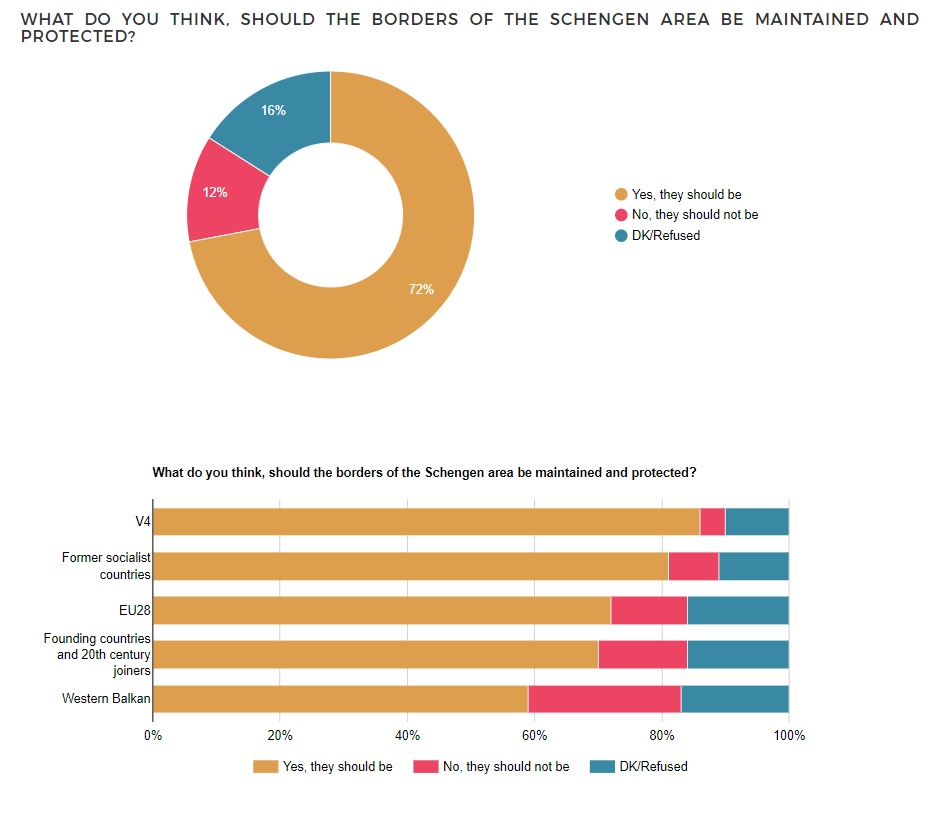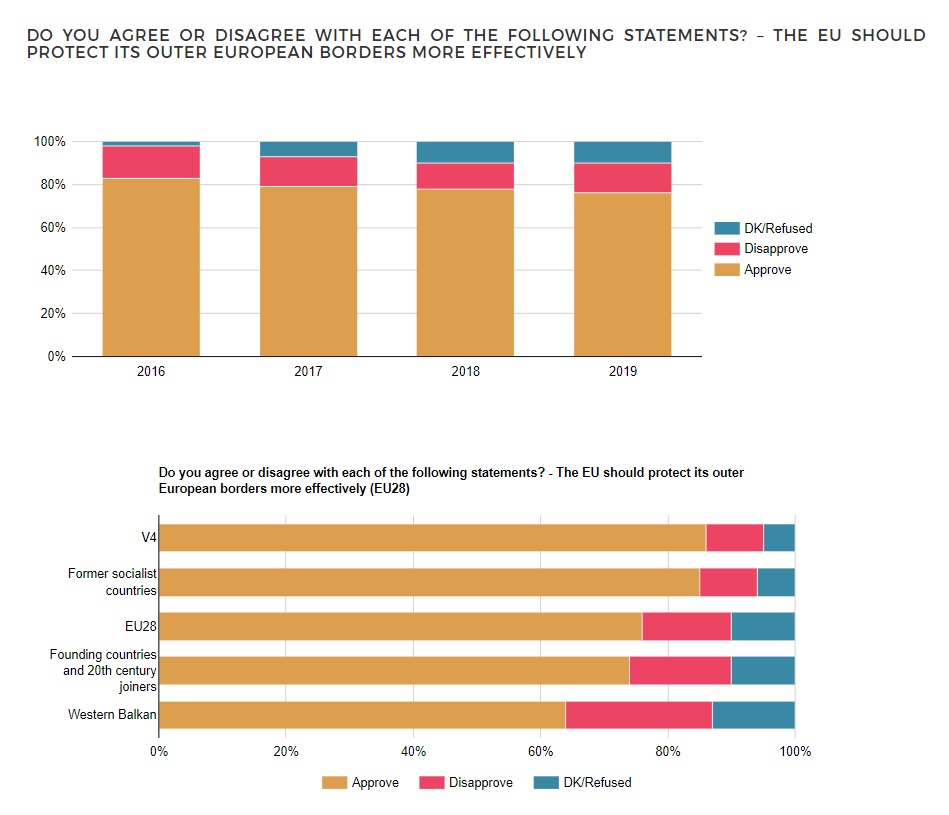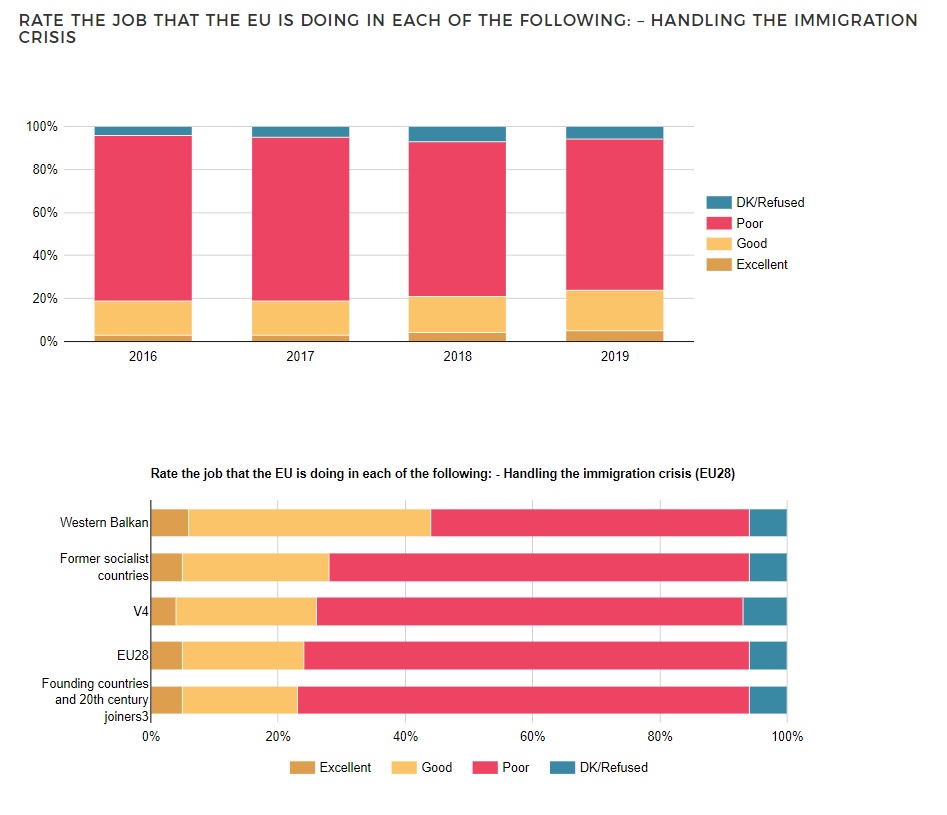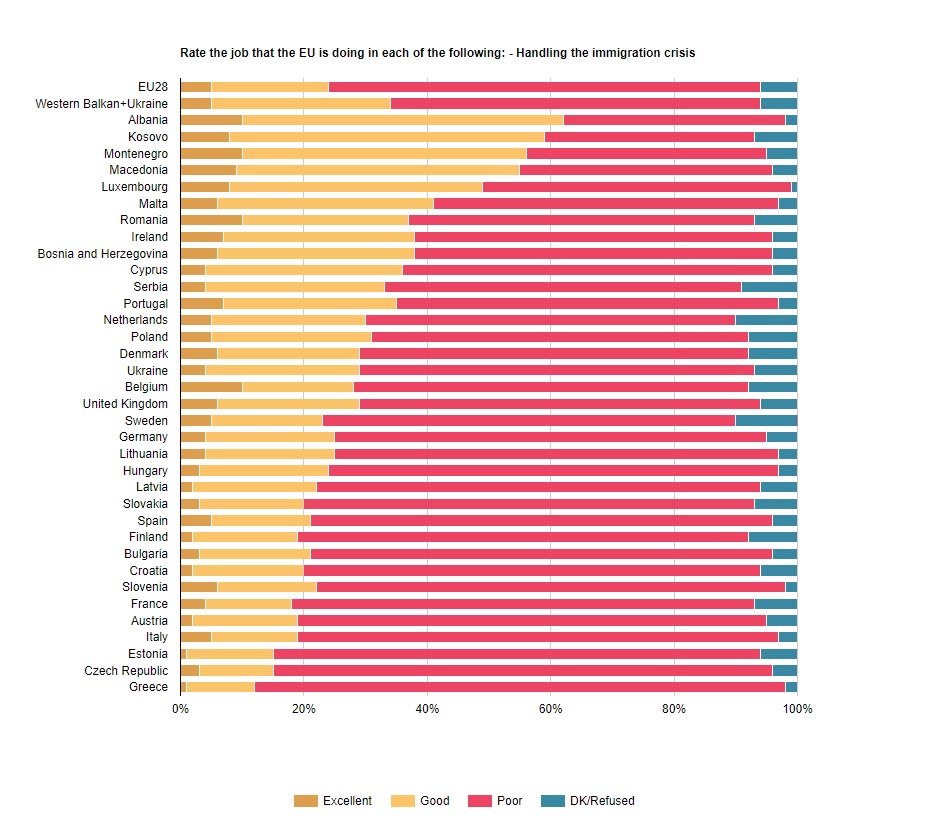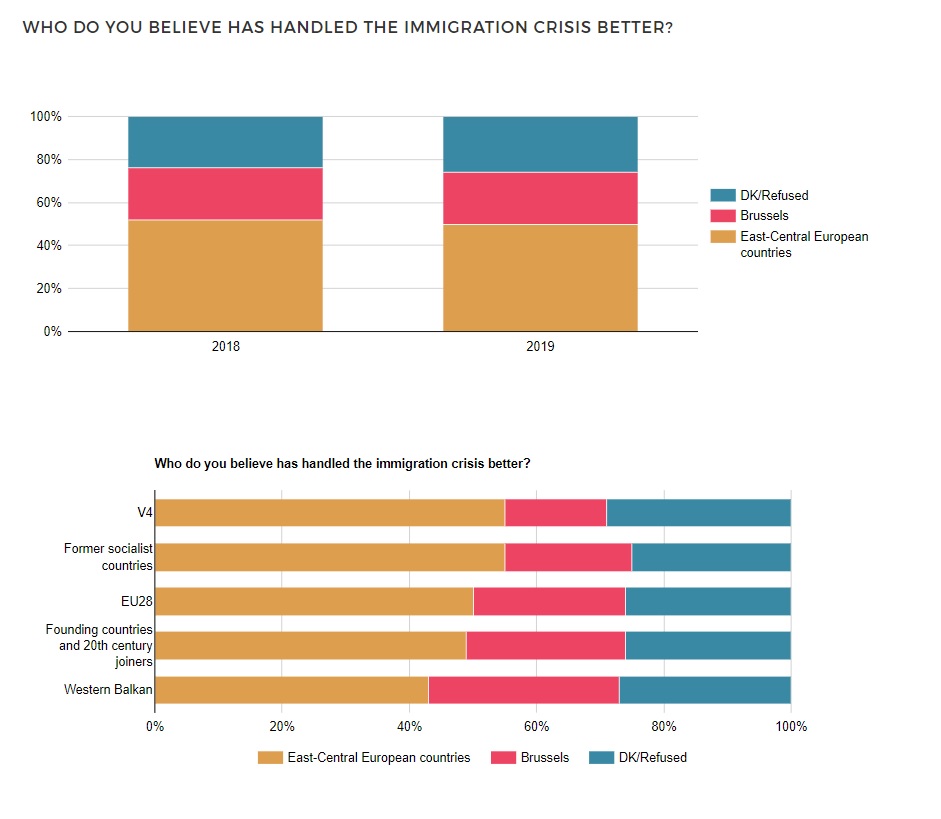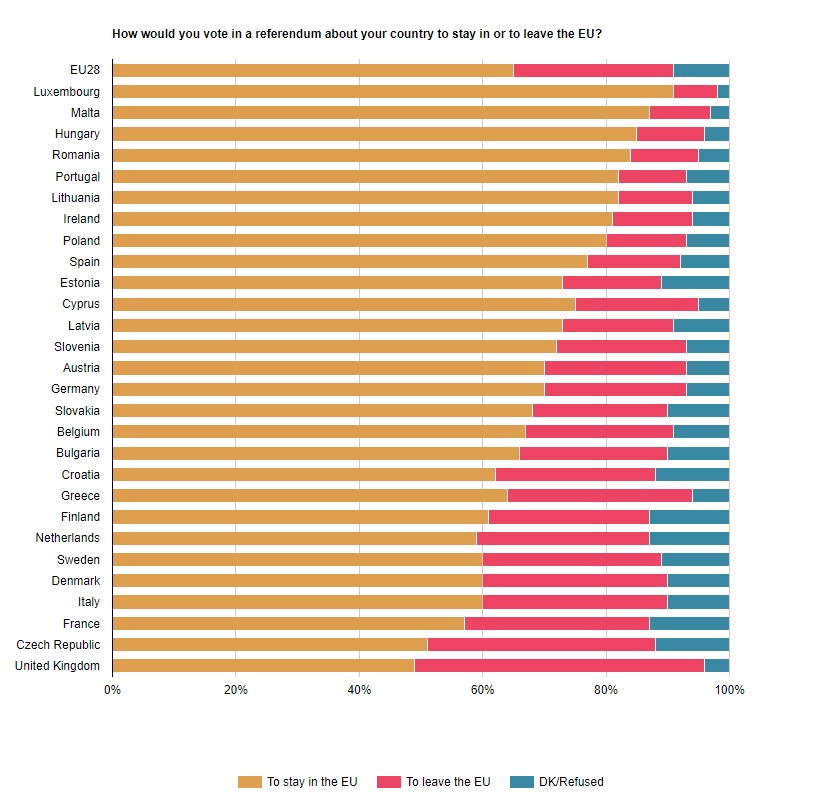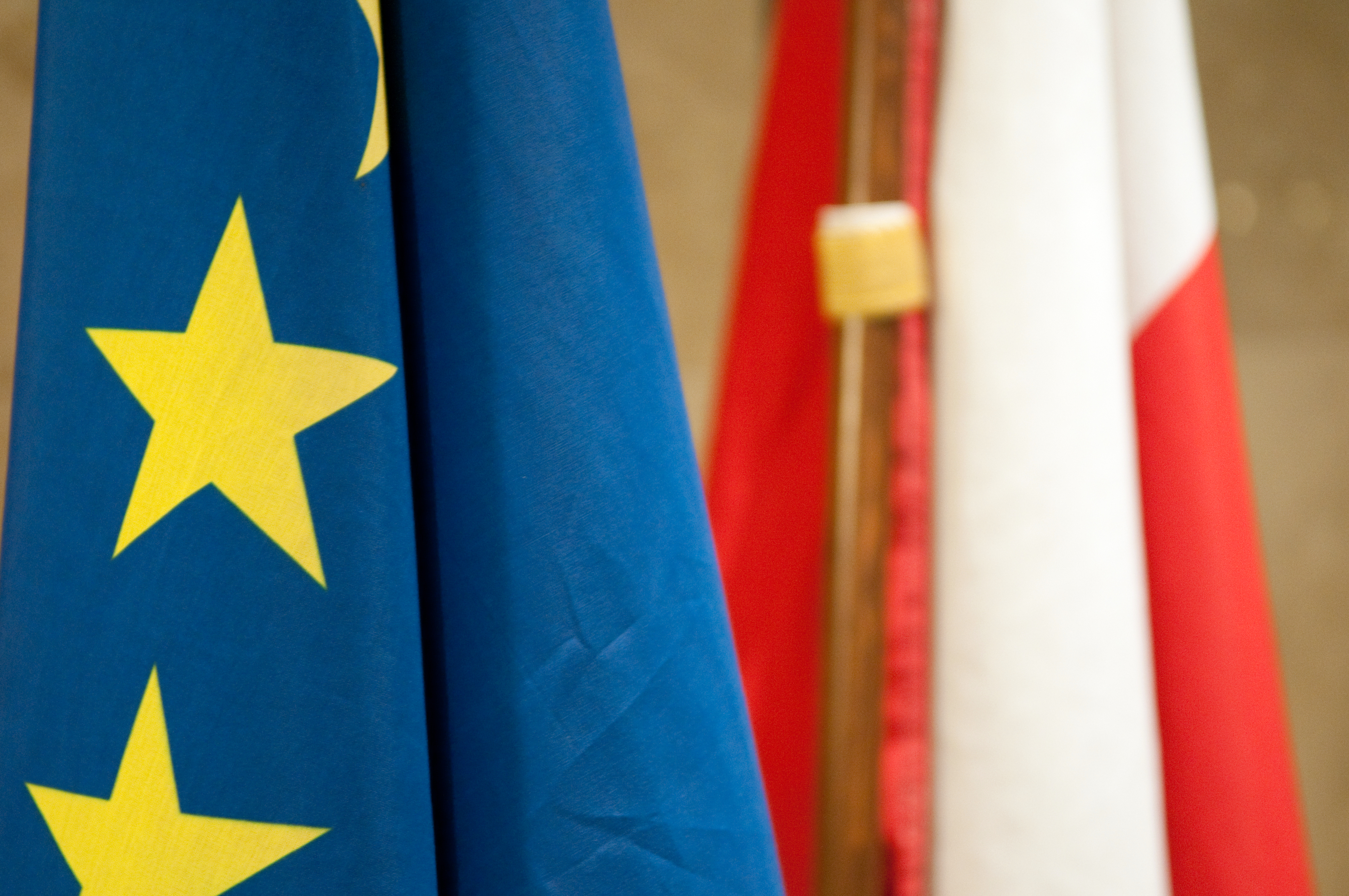By the Visegrád Post Editorial Staff
Hungary – Less than two weeks ahead of the European elections of May 26, the political research institute of Századvég revealed on Tuesday, 2019, May 14, the results of its annual European-wide survey. For the occasion, a conference was held in Budapest under the name “Europe elects!”. 35000 people have been interrogated between January 7 and March 31, 2019, forming a representative sample for each of the 28 EU member state and Western Balkan countries, as well as Ukraine.
A vigorous opening
The conference held in order to introduce the survey conducted by Millward Brown on behalf of the Századvég Institute has been started by a speech of the Hungarian Deputy Premier Zsolt Semjén, President of the Christian Democratic People’s Party. For the number two man of the Hungarian government, “today’s policy of Brussels is incorrect, unlawful and anti-democratic”. Recalling that “the topic of migration is the most important one [since] it is about deciding if a nation would become mixed and changed for ever, or not,” Zsolt Semjén explained that for example France have already become a mixed nation, but it is not the case for Central European countries, which then still have the choice whether to become a mixed nation or not.
Then, he sent a strong message to some ambassadors, among them some Westerners, speaking heartily: “my country has known Islamic invasion, it has been teared apart for 150 years and lost half of its population meanwhile. So don’t anyone dare come to us and try to tell us about how to live together”. The Deputy Premier also explained that if Islam was gaining ground in Europe, it was only because it was filling a void. “Anyone denying the Christian civilization denies the principle of Europe itself,” he said, adding that the responsible were the ones attacking the Christian identity of Europe and of its nations: “Freemason, communist and liberal ideologies constantly try to erode the Christian civilization”.
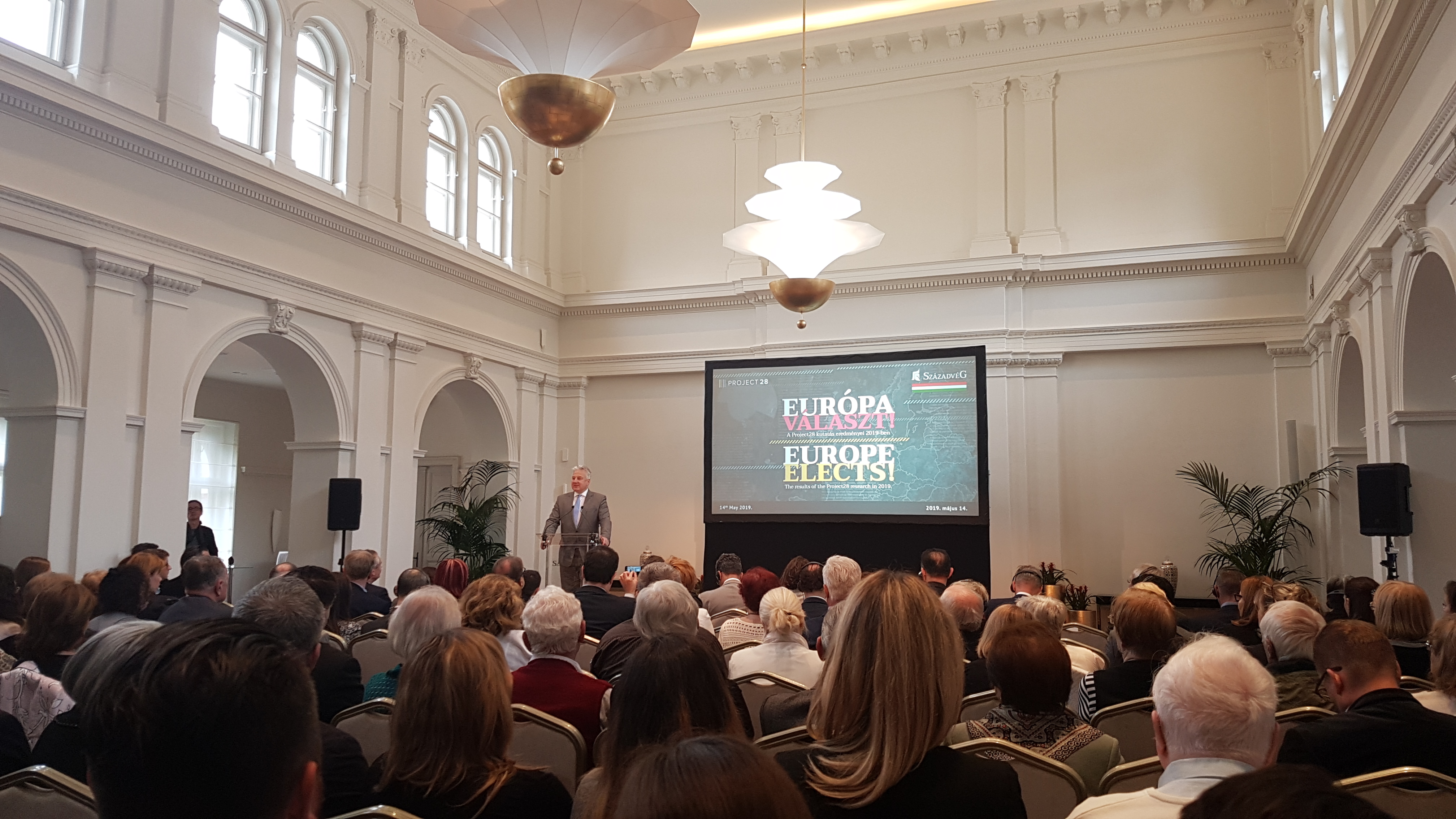
What says the Project28 survey?
The survey was focused on five axis: to get to know the feeling of prosperity in the countries, map the attitudes of the citizens related to the EU and to the potential candidate countries, examine perception of the citizens regarding relevant social, political and foreign affairs, to asses opinions regarding migration, and to measure general attitudes in different current topics such as the protection of Christianity and marriage, globalization, gender and social medias.
This survey shows in particular — which is emphasized by the government-friendly institute — that the fault line separating Western Europe from Central and Eastern Europe — and more specifically the V4 — is huge. Indeed, in many polls, the results are compared through the prism of four groups: the founding countries, the whole EU28 bloc, the V4 and the group of former Socialist states. These differences among the groups are very insightful, and show that it is true that several Europes do exist.
Paradoxically, Western Balkan countries, and more generally the whole bloc of former Socialist countries (V4 included) are much more conservative on societal topics, but also less skeptical regarding the future of EU, and while they criticize more Brussels they also wish massively to stay within the EU. This of course seems to prove right the Central European governments, which argue that they are the true constructive alternative to Brussels’s EU, and that their project goes with “fighting Brussels” for the sake of the European project; unlike western euroskeptic politicians, more incline to support the dissolution of the EU or at least the exit of their country from the EU.
Of course, Europeans also speak with one voice on some topics. This is the case for the handling of the migrants crisis by the EU’s authorities or the importance of the EU’s external borders’ protection — two useful data for Viktor Orbán’s government, defending these themes for years now.
With this survey, Századvég institute paints a portrait of Europeans with is definitely useful and very well compiled. This is the fourth edition of this survey, providing people with the possibility to now compare evolution of opinions through the years.
We picked up few of the graphics that we found interesting, but we invite you to discover by yourself the whole survey by clicking here!
About future
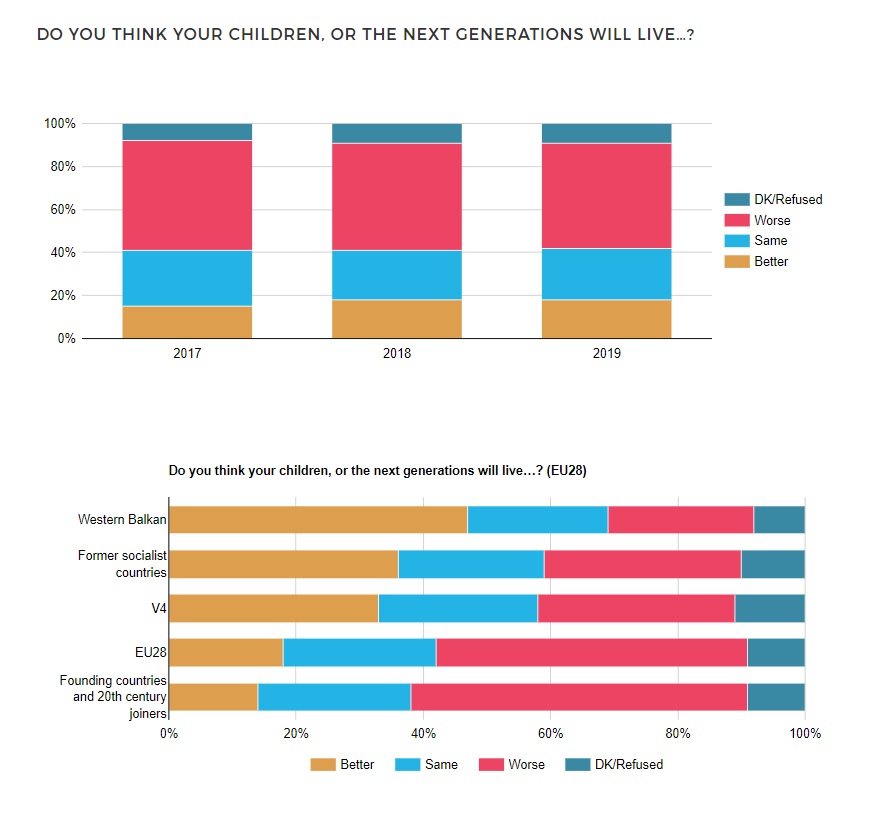
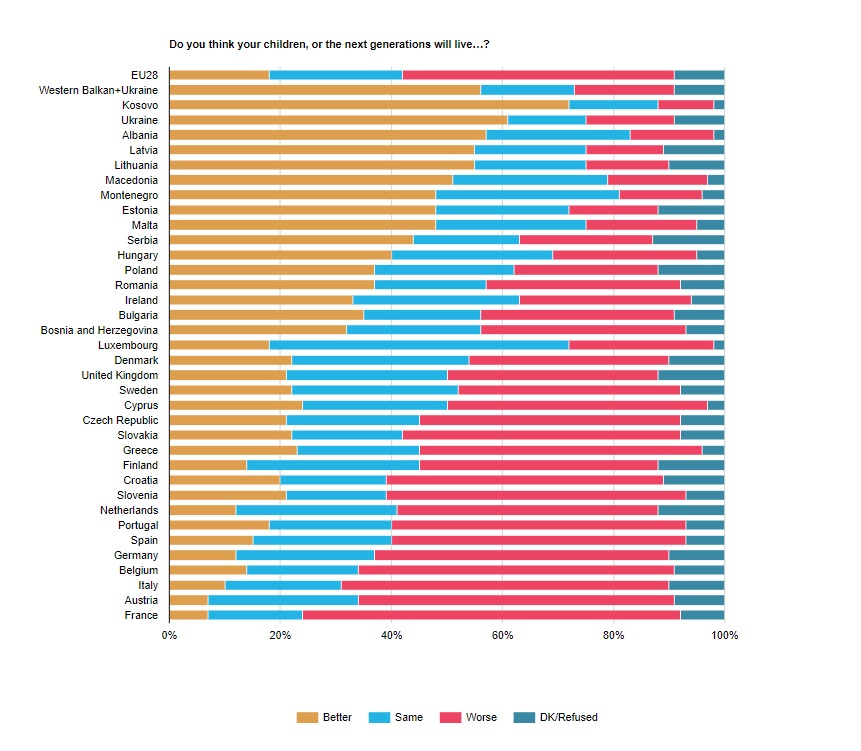
Christianity in society
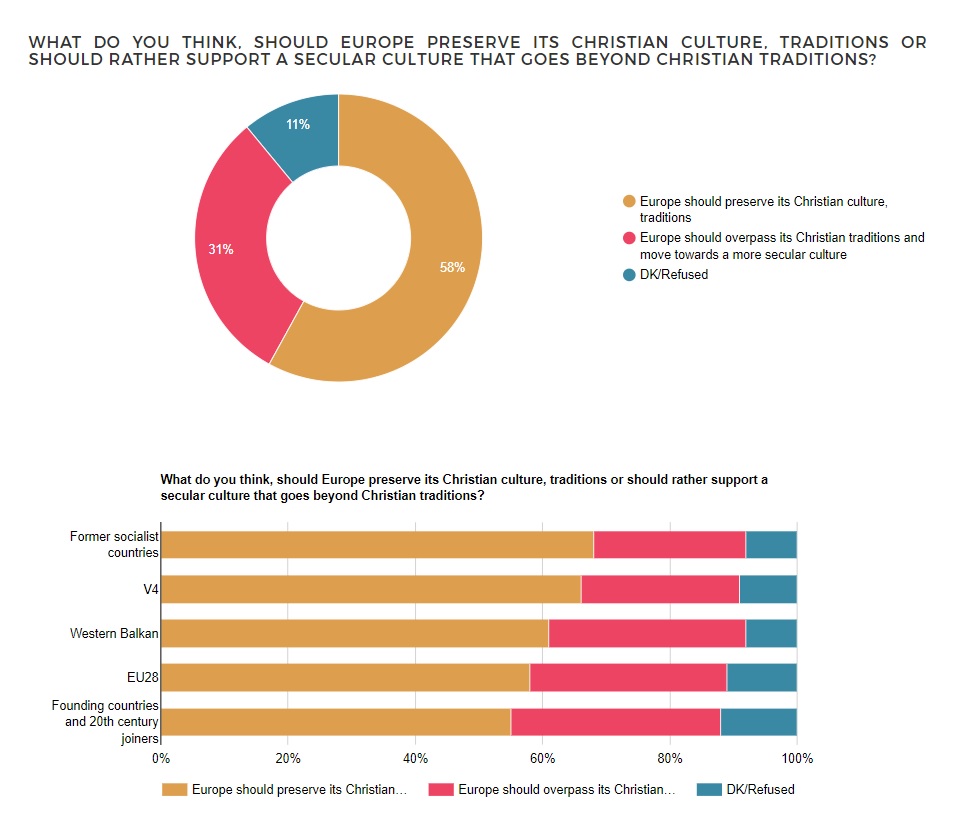
European Union: representativity and immigration
